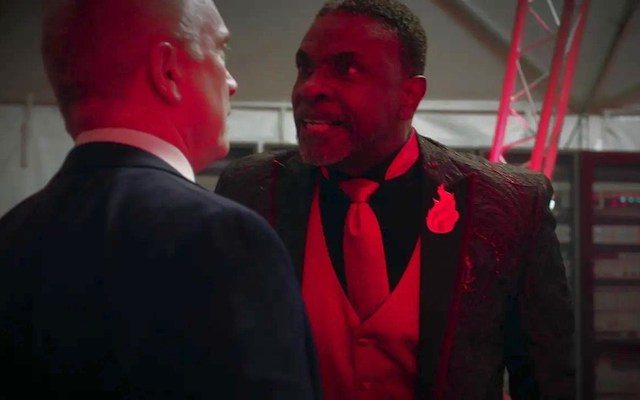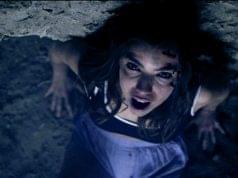
[On Blu-ray and Video on Demand.] •••
I never saw “Tales from the Hood,” but if “Tales from the Hood 2” is any indication, I must go back and watch it posthaste — though I wonder if the racial climate of 1995 could have inspired as much righteous anger and caustic satire in writer-directors Rusty Cundieff and Darin Scott as today’s does. The tone here is “We are DONE with your crap, racists.” I’m sure they were fed up then, too, but things have gotten worse in some ways, and they’ve had 23 more years to put up with it.
This is an incendiary, highly entertaining black-themed horror-comedy anthology, akin to what you’d get if Spike Lee (who executive-produced) made “Creepshow.” The stories are like the old E.C. horror comics, broadly played morality fables where people receive fitting punishments for their despicable acts. It’s the kind of movie where a character is named Dumass Beech just so someone can willfully mispronounce it “Dumbass Bitch.”
The setup is that the aforementioned Mr. Beech (Bill Martin Williams), a loathsome right-wing tycoon and Trump avatar, is building an A.I. robot called RoboPatriot to patrol America’s streets and make us safe again. Beech has hired professional storyteller Portifoy Simms (played by badass super-ham Keith David) to come in and spin some yarns for the robot to help it learn how to tell good guys from bad guys. Seeing Beech’s blatant racism (he brags about how the private prisons he owns are full of “your kind”), Simms naturally selects stories that will give RoboPatriot a better sense of racial justice than its creator has.
It’s a totally over-the-top premise, delivered with cartoonish gusto. It leads to an equally bonkers first segment, in which a clueless white girl and complacent black girl visit the Museum of Negrosity, a repository for racist merchandise and marketing of yesteryear — “the first true corporate brand,” says the ultra-serious owner (Lou Beatty Jr.) of the way white people stereotyped blacks after they couldn’t own them anymore. The white girl (Alexandria DeBerry) wants to find a replica of the golliwog doll she had as a child, but the curator won’t let her and her friend (Jasmine Akakpo) treat evil so lightly. You might guess where this all goes, but I doubt it, and even if you do, I bet it proves more grotesque and hilarious than you imagined.
The second story has a group of gangstas inadvertently killing a rival, then trying to force a TV psychic (Bryan Batt) to channel him so they can find out where he hid the money. This marvelously ridiculous premise is exploited to its fullest potential, with a very funny performance by Batt (whom you’ll remember as gay Sal on “Mad Men”).
Part three, about two Hollywood bros (one white, one black) who try to take advantage of two wannabe actresses, is the weakest of the lot and has little connection to the themes of the others. Such is the nature of anthologies.
The last segment is a curiosity, played straight like a “Twilight Zone” episode, complete with potentially heavy-handed message. A white woman (Jillian Batherson), pregnant by her black husband (Kendrick Cross) — who’s campaigning for a racist GOP Mississippi gubernatorial candidate — keeps having dreams about a young boy who we come to realize is Emmett Till. These dreams make her fear for the health of her baby for reasons I won’t spoil but which make metaphorical sense once they’re explained. “Respect the sacrifice” emerges as the rallying cry as other civil rights martyrs are invoked — the Ghosts of Racism Past, you might call them.
Part of me wishes the film had stayed at the same level of over-the-topness that it began with, where it provided laughs and shocks in equal measure while still making its (quite valid) political points. But I respect Cundieff and Scott’s choice to bring things to a serious point, preventing the movie from being “just” a biting but frivolous satire. This segment’s criticism is aimed at blacks who fail to “respect the sacrifices” their forebears made — who vote Republican, basically. Most of the people who would be offended by this or the film’s other messages won’t be seeing it anyway, but the movie doesn’t care if it does bother anyone. Like I said, they’re through tiptoeing.
And don’t worry — the resolution of the wraparound segments, back at the lab with Dumass Beech and Portifoy Simms, returns us to high levels of audacious anti-racist merriment. The glaring mixture of broad slapstick, potent satire, and exploitation-movie blood ‘n’ guts is all part of the film’s sloppy, winning charm.
B (1 hr., 50 min.; )



